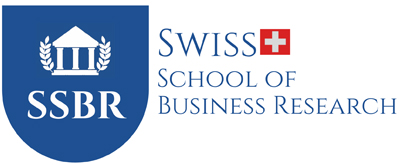Accelerating PhD Completion with Modern Technology
A PhD has usually been seen as a long and tough path, usually taking three to five years or more. This long time is mostly because of the heavy work involved, such as long literature reviews, data gathering and analysis, and careful thesis writing. But in today’s digital world, improvements in tech are changing the academic field, allowing PhDs to be done much faster.
Technology’s Role in Speeding Up
PhD Research Simplifying Literature Reviews with AI Tools.
A big part of a PhD is the literature review. In the past, this meant reading through many articles and books, which took a lot of time and effort. But now, AI tools like Elicit.com are changing this. Elicit.com uses machine learning to quickly find and gather important literature. Researchers can put in specific questions or keywords to get a list of relevant articles, saving months of searching and reading. This speeds up the literature review and makes it more accurate by preventing missed important studies.
Improving Data Analysis with AI and Software Data analysis.
Another major part of PhD research, has also improved with tech. Advanced stats software and AI analytics tools can process big data sets quickly and accurately. Tools like R, Python, and specialized AI software can do complex analyses that used to take weeks or months, in much less time. These tools can find patterns, test ideas, and generate insights very precisely, speeding up research.
Efficient Writing and Referencing
Writing the PhD thesis, usually a 60,000 to 80,000-word work, is another area helped by tech. AI writing tools like Grammarly and ProWritingAid can improve writing by suggesting grammar, style, and clarity improvements. Additionally, referencing tools like Zotero, EndNote, and Mendeley can automate citations, making sure they are formatted correctly, saving time and effort. Presentation of Results Presenting research results well is key for a PhD thesis. Modern visualization tools like Tableau, Power BI, and AI-powered visual software can turn complex data into clear, powerful visuals. These tools help researchers create good graphs and charts, improving the clarity and impact of their findings.
The Modern PhD: A Short-Term Possibility
With these tech advancements, the long traditional PhD timeline isn’t needed anymore. With hard work and modern tools, it’s possible to finish a PhD much faster, maybe even in months. The PhD by Portfolio: An Example An example of this faster PhD model is the “PhD by Portfolio” from the Swiss School of Business Research. This program credits pre-existing research, skills, and knowledge, allowing candidates to get a doctorate in a year. It’s made for busy executives who can’t take long breaks from work. By using modern tech, candidates can speed up their research and reach their academic and professional goals faster.
The PhD by Portfolio: A Case Study
A prime example of this accelerated PhD model is the “PhD by Portfolio” program offered by the Swiss School of Business Research. This innovative program recognizes and accredits pre-existing research, comprehensive research skills, and subject knowledge, allowing candidates to achieve doctoral recognition within a year. The program is designed for hard-working executives who cannot afford to take extended time away from work. By leveraging modern technology, candidates can expedite their research processes and achieve their academic and professional goals in a much shorter timeframe.
https://www.ssbr-edu.ch/phd-by-portfolio/
Conclusion
In conclusion, the convergence of advanced technology and academia is reshaping the traditional PhD journey. Tools like Elicit.com for literature reviews, AI-driven data analysis software, writing and referencing assistants, and modern visualization tools collectively streamline the research process. This technological synergy makes it possible to complete a PhD in a fraction of the time traditionally required. As we continue to embrace and integrate these technological advancements, the future of doctoral research looks promising, with shorter, more efficient, and equally rigorous pathways to academic achievement.
About Swiss School of Business Research
The Swiss School of Business Research (SSBR) exemplifies progressive academic leadership by seamlessly integrating these cutting-edge technologies into its curriculum, reflecting a deep commitment to innovation in education. Embracing AI tools like ChatGPT within its programmes, SSBR not only prepares its students for the evolving digital landscape but also instils an ethical framework for utilising such technologies. This approach ensures that graduates are not merely proficient in the latest technological tools but are also adept at applying them within the strict ethical boundaries of academic research and professional practice. SSBR’s pioneering stance on the ethical use of AI in education underscores its role as a beacon of forward-thinking pedagogy, equipping students with the skills necessary to leverage technology responsibly for academic and professional excellence.
email: admissions@ssbr-edu.ch

